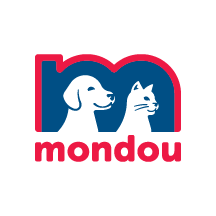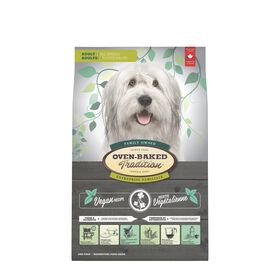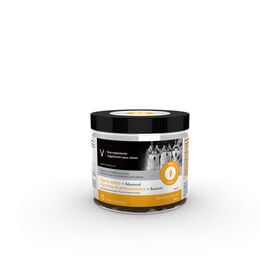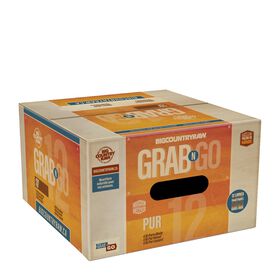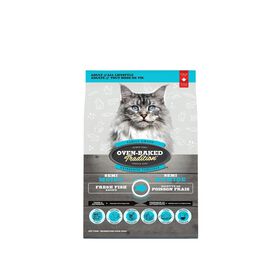There was a time when feeding your pet was a simple choice: kibble or canned food. Today, as knowledge about pet nutrition evolves and pet owners' expectations shift, the options are far more diverse. Whether it's about addressing specific needs, opting for more natural foods, or reducing environmental impact, the industry is adapting and innovating.
Here are four major trends that are transforming the way we feed our cats and dogs.
1.Functional nutrition
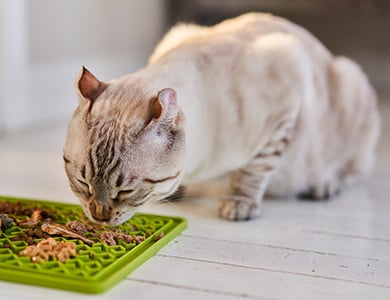
it has become a real tool for supporting pet health and well-being. More and more pet owners are looking for formulas that meet their pet’s specific needs, whether for digestion, joint health, weight management, or even emotional well-being.
What Is Functional Nutrition?
It’s an approach that adapts food to each pet’s specific needs. Today, you can find formulas enriched with targeted ingredients to support different aspects of health:
- Sensitive digestion: Foods enriched with probiotics and natural fibers like pumpkin.
- Joint health: Glucosamine, green-lipped mussels, collagen.
- Healthy skin and coat: Oméga-3, fish oil.
- Calm and comfort : Tryptophan, chamomile, L-theanine.
- Weight management: Low-calorie formulas rich in fiber to promote satiety.
- Dental health: Kibble with specific textures, marine algae.
Companies are taking this even further by offering formulas designed for specific breeds. A French Bulldog doesn’t have the same jaw shape or nutritional needs as a Labrador, and a Maine Coon has different dietary requirements than a smaller cat. These tailored formulas help address their physiological differences while ensuring balanced nutrition.
2.A focus on sustainability and alternative proteins

With growing environmental awareness, pet food is also shifting toward more sustainable choices. Many brands are rethinking their formulas to reduce their ecological footprint, whether by incorporating alternative proteins, using locally sourced ingredients, or adopting more responsible practices.
Moving toward more eco-friendly pet food
- Alternative proteins: Insects (crickets, black soldier fly larvae) and plant-based proteins, recognized for their low environmental impact.
- Plant-based formulas: Vegan pet foods are emerging as an alternative for owners looking to align their companion’s diet with their personal values. By relying on diverse plant-based protein sources and a selection of nutrient-rich ingredients, these formulas provide a balanced diet without animal-derived or dairy ingredients.
- Sustainable packaging: Biodegradable, recyclable, or post-consumer recycled material packaging.
These innovations ensure that pet food remains both nutritious and environmentally responsible.
3.A more natural and minimally processed approach
More and more pet owners are opting for minimally processed food for their pets. The goal? To move closer to a more natural diet, free from unnecessary additives and artificial preservatives, while maintaining optimal nutritional balance.
More natural and convenient options
Complete patty formulas, especially for raw feeding, simplify meal preparation. Toppers, in the form of freeze-dried meat, broths, or superfoods, help enhance meals. However, minimally processed food often requires more careful handling and storage than traditional kibble. It is therefore essential to follow the manufacturer's recommendations to ensure your pet's food safety.
Also read : Switching your pet to a raw food diet: a step-by-step guide
4.Choosing local: more than just a trend, a conscious decision

Choosing locally made pet food isn’t just about supporting local businesses—it’s also a way to ensure higher-quality ingredients, better oversight, and greater transparency in sourcing.
Why choose local products?
Reduced environmental footprint thanks to shorter supply chains.
Better traceability of ingredients.
Support for local businesses that are innovating in pet nutrition.
Thanks to Les Produits du Québec certification, it’s now even easier to identify locally made pet foods and make informed choices.
Pet nutrition is evolving, and these trends show that pet owners are looking for solutions that better meet their companions’ needs. Whether by choosing functional nutrition, integrating more sustainable options, opting for minimally processed meals, or supporting local products, the goal remains the same: to provide pets with food that supports their health while aligning with their owners' values.

